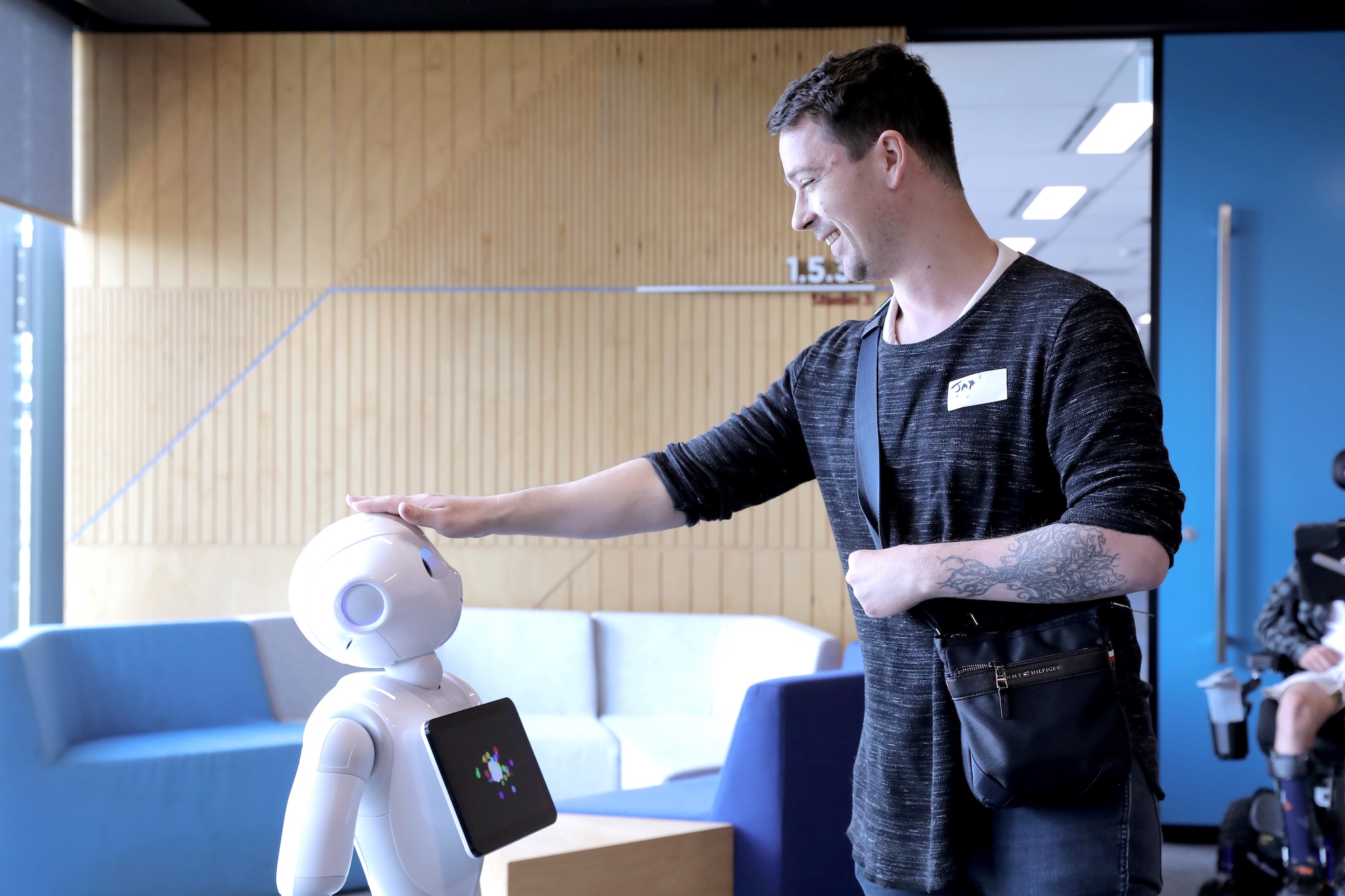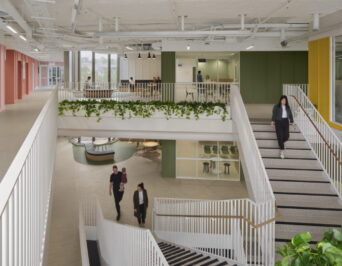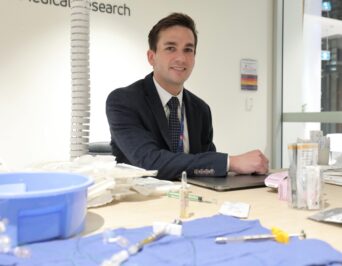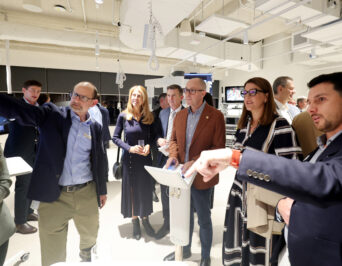
Research lead: A/Prof Grahame Simpson and Brendan Worne
Research area: Assistive Technology
Team: iCare NSW, A/Prof Libby Callaway, Monash University, Kate Mather, Ingham Institute for Applied Medical Research, Emerita Prof Robyn Tate, University of Sydney
What was the health problem that led you to carry out your research?
Acquired brain injury (ABI) refers to physical damage to the brain that results from various causes, such as traumatic brain injury, stroke, infection and brain cancer. ABI often leads to cognitive impairments that impact executive functions and cause difficulties with memory, judgment, insight and the organisation of daily tasks. These cognitive deficits impact health and wellbeing, posing challenges to independent living, relationships and participation in employment and leisure activities. People with ABI need regular reminders for executive functioning to help manage daily tasks,
a role typically filled by support workers or carers. Assistive technology is rapidly evolving and there are an increasing number of platforms for supporting executive functions, such as home hubs with movement-sensing and audio-prompting technology (similar to Alexa or Google Home devices) that offer pre-recorded verbal prompts to assist with self-care (e.g. showering and taking medication), household tasks (e.g. putting out the garbage) and reminders (e.g. putting in hearing aids). However, limited published evidence exists for such technology to support individuals
with ABI at home or in community settings.
Describe the research achievement and its impact.
The SMARThome trial addresses this gap. It utilises a series of single-case experimental designs to evaluate the effectiveness of smart home, mobile and
wearable technologies in improving executive function difficulties following ABI. Each study participant undergoes an assessment in their home to match the appropriate technology to their needs and goals. The SMARThome trial utilises accessible, mainstream technology that most people already have, representing a low-cost solution. To date, 19 participants have been screened, with trials conducted for five participants. Initial results indicate that existing technologies can transform the lives of people with ABI by supporting and remotely monitoring their daily tasks. By automating reminders and prompts, assistive technology alleviates the burden of care, reduces the need for carers, and lowers healthcare costs. The broader impact of this research includes improved health outcomes, enhanced quality of life, increased independence, greater community participation and reduced reliance on carers.
How was the work unique or pioneering?
The SMARThome trial is unique as there are no high-quality trials in assistive technology for ABI using single-case experimental design. This research is informing the development of a website portal to demonstrate how to implement assistive technologies effectively to support people with ABI. The website also provides resources such as checklists and assessment tools.
What is the broader implication of the research?
Collaborators include Monash University, the University of Sydney, Royal Rehab and CSIRO, who are adapting mainstream technology for people with brain injuries. The SMARThome trial demonstrates how existing and accessible technologies can enable people with ABI to achieve their goals and enjoy a better quality of life and independence at lower costs. By providing an evidence base for assistive technology solutions, this research can be adopted globally, with dissemination planned through website resources.




